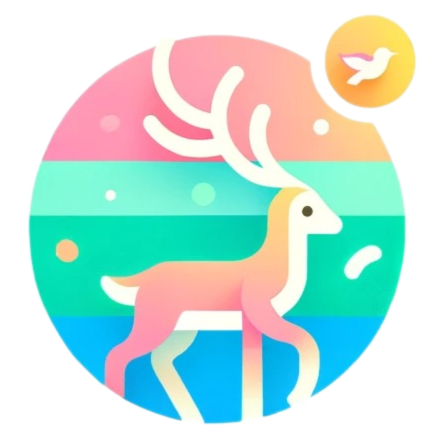Quokkas are generally very friendly towards humans. Some quokkas may be more outgoing and approachable, while others may be a bit more reserved.
Quokkas are known for their friendly and curious nature. They are often referred to as the “happiest animal on Earth” due to their seemingly smiling faces. Quokkas are not afraid of humans and are known to approach them.
While quokkas are certainly friendly, touching and petting them is not permitted. Quokkas and birds on Rottnest Island have been known to deliver a nasty bite as well as carry diseases like Salmonella.
Quokkas are friendly and approachable creatures. They have little fear of human contact, and they’ll hop right up to people who are marveling at them. This is how visitors to Rottnest Island are able to pose for so many “quokka selfies.”
Unfortunately, quokkas are a protected species in Australia, and can’t be kept as pets.
Quokkas, the smallest wallaby species, are known for their adorable and friendly nature. These marsupials are found in Australia on the Rottnest Island and the mainland. Their adorable features and friendly behavior have made them an internet sensation.
Are quokkas only in Australia?
Quokkas live in southwestern Australia. They inhabit Rottnest Island off Perth, Bald Island near Albany, and forests between Perth and Albany. Quokkas weigh 5.5 to 11 pounds and measure 16 to 21 inches long, with a 9 to 12 inch tail. Their populations are decreasing due to drought, disease, fires, and land development. Quokkas can survive months without water, storing fat in their tails. They make noises when distressed. Quokkas are marsupials related to small kangaroos or wallabies. As vulnerable species with low numbers, quokkas are protected by the Australian Government. You cannot have a pet quokka in the United States because exporting wildlife from Australia is illegal. Quokkas eat plants.
Can you have quokka as a pet?
Unfortunately, quokkas are a protected species in Australia, and, per the Rottnest Island Authority Act of 1987, can’t be kept as pets. You’re also not allowed to take quokkas out of Australia to be your pet elsewhere, meaning you’re most likely to spot one on their native island.
No matter where you live in the world, you can’t have a pet quokka. Quokkas are a protected species native to Australia and it is illegal to keep pet quokkas. Outside of Australia, it is also illegal to have a quokka as a pet because you are not allowed to export native species from Australia without a special permit.
There are no quokkas for sale. So you would have a hard time finding a baby quokka you can buy at the local pet store or from a breeder. Perhaps you can find one at the black market. But you would have to pay very high prices that likely exceed the amount of tenth of thousands of dollars.
Natural predators of quokkas are dingoes and birds of prey. Introduced dogs, cats, and foxes have led to significant population declines on the mainland.
While tourists are often eager to take selfies with quokkas, it is advised to maintain a safe distance to avoid disturbing them.
Another big threat to quokkas is humans. People just can’t resist trying to feed, pet, cuddle and capture them. There have also been cases of animal cruelty towards quokkas. Since they’re such a prevalent part of life on Rottnest Island, people take liberties with them.
The short answer is No. Quokkas are protected animals in Australia and can’t be kept as pets. Even it’s not allowed to take a quokka from Australia elsewhere or disturb their natural way of life. The IUCN also classifies Quokka as threatened, and fines range from $150 to $50,000 or more for exporting or outright abusing the animals. All this, unfortunately, means the Quokka likely will only be a viable pet for a short time, if at all.
In this article, we will explore the characteristics of quokkas, their natural habitat, and the challenges associated with keeping them as pets. By the end, you’ll have a better understanding of whether a quokka is the right pet for you. Quokkas are not suitable as pets due to their specific habitat requirements and specialized diet. Quokkas are wild animals that should be left undisturbed in their natural environment.
Why is quokka going extinct?
Quokkas live about 10 years in the wild. Quokkas are vulnerable to extinction due to habitat loss, predation by foxes and feral cats, disease, and human activities. The quokka is endemic to Australia. Since the 1900s, its population has decreased by over 50 percent. Quokkas are herbivorous and mainly nocturnal. They inhabit islands and forests off Western Australia. Quokkas weigh 2.5 to 5 kg and are 40 to 54 cm long with short tails. In 2015, “Quokka selfies” went viral as tourists posed with the “happiest animal on earth.” Quokkas toss their babies at predators to escape. An estimated 4,000 quokkas live on the mainland. Quokkas are aggressive with numerous bites per year. Human interaction stresses quokkas. Quokkas are protected in Australia and can’t be pets. The quokka’s range is a fraction of forests decimated by fires in Australia. Quokkas are vulnerable to predation by cats, dogs and foxes. The quokka population is stable on predator-free Rottnest Island. Quokkas live in a limited number of other areas. There is a lack of survey and monitoring of quokka subpopulations. Poor management decisions may be made without knowledge. Quokkas are often called the happiest animals. However, they don’t actually smile. It’s the shape of the upturned mouth. Male quokkas are larger than females.
